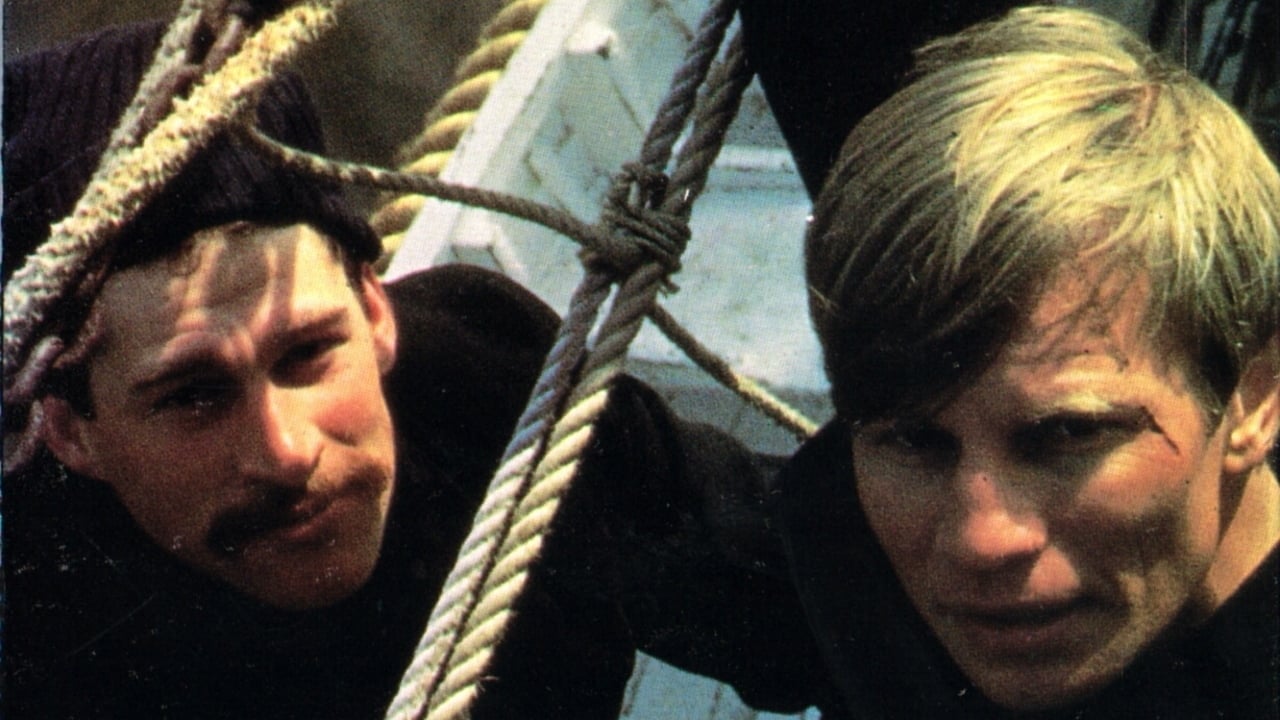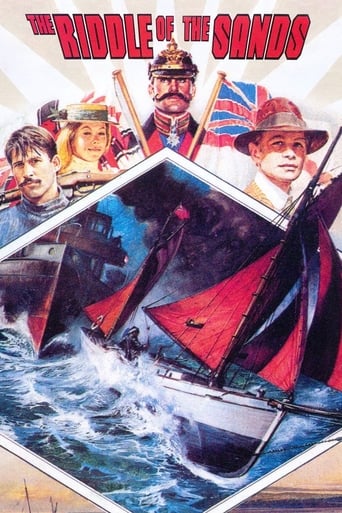

Stylish but barely mediocre overall
... View MorePurely Joyful Movie!
... View MoreThere are moments that feel comical, some horrific, and some downright inspiring but the tonal shifts hardly matter as the end results come to a film that's perfect for this time.
... View MoreA great movie, one of the best of this year. There was a bit of confusion at one point in the plot, but nothing serious.
... View MoreThis film has very little to recommend it. Its basic premise, a potential German invasion of Britain in the early twentieth century, may have been electrifyingly relevant at the time of the original novel's publication, but is somewhat dated now. What little action there is is of Boy's Own variety: the heroes turn up just in time to overhear the spies divulge their secret plans in a "rhubarb rhubarb, invasion, rhubarb rhubarb, weapons, rhubarb, England," sort of way.Apart from that, the script and cinematography are not great. The script is rather clunky, even beyond its source matter, and seeks to over-explain what's happening. For instance, when the crew walks out on deck one will say "its foggy again" even though the fog is obvious. The occasional voice-over narration (by Michael York)adds little to the story but rather detracts from it. Seeking to explain in words what we should be seeing on screen is antithetical to cinema, and is particularly irritating when the end is told rather than shown to us.Much of this narration seems to be caused by budgetary restraints rather than artistic choice. Certainly a lack of money, especially during the very few action scenes, makes them even more underwhelming than they might have been. The crashes between boats (which is most of the 'action') looks as exciting as seeing two toy boats have a slight hit on a puddle.The film in general has the look and feel of a 70s TV movie. Nice enough to watch, but certainly no classic. The theme music, however, is rather good and deserved a better movie.
... View MoreI thoroughly enjoyed this old-fashioned spy yarn based on a novel by Erskine Childers. The story is simplicity in itself: a quintessentially British yachtsman, Arthur Davies, is exploring off the coast of Germany when he uncovers some strange activity. He calls in his upper-crust friend, Carruthers, and the two soon find themselves out of their depth and caught up in some sinister events.Okay, so there isn't much story to go along with, and the story that there is is rather predictable. That's beside the point: RIDDLE OF THE SANDS is a strongly visual film that conveys the joys of being free on the oceans, as well as the pleasure of a world that was a lot simpler than ours. It's well-shot throughout with an infectious charm, and as the two leads, Simon MacCorkindale and Michael York have a wonderfully deadpan chemistry.The thriller and spy aspects, although relatively mundane by modern-day standards, are interspersed well with the rest of the story, and Jenny Agutter turns up as lovely as ever. There are some well-handled set-pieces dotted throughout - the atmospheric journey through the fog, the hide-out in the loft, the dinner scene - and if the film doesn't perhaps excite you as it might, then it leaves you with a warm and cosy feeling afterwards, like the effect of sitting by the dying-down remnants of a roaring fire.
... View MoreIf you've read the book you'll realise that it couldn't be made into a 90 minute or so film. Bits have to be cut and some scenes adapted so that the film contains a flowing understandable narrative. Often this is not particularly successful. Riddle of the Sands suffers to some extent in this way. Nevertheless this is a pretty good attempt at transferring the book to film. Michael Yorke and Simon McCorkindale are right for the parts they play. Neither are my favourite actors but I don't think many others would have portrayed the characters, warts and all, as realistically. The supporting cast are where the real strength of the film lies. Hans Meyer as Grimm is wonderfully sinister, as indeed is Michael Sheard as Boehme. Alan Badel was one of the best actors ever and his portrayal of Dollman is flawless. Jenny Agutter as Clara also shines. The music by Howard Blake deserves mention because the soundtrack is so important when setting the mood and, besides, the recurrent theme is a very nice piece of music. This is a slow-paced film but is nonetheless a powerful and well told story. If you want fast action and explosions everywhere give it a miss and head for some standard Hollywood identikit action film. If you want a well made story set in beautiful surroundings with good understated performances and a decent soundtrack try and hunt down a copy of the video or catch it on one of its rare TV showings.
... View MoreThe Riddle of the Sands seems to be symptomatic of the British film industry of the 1970's and 1980's. A small cast of characters in an enclosed setting (despite being set mostly at sea, the claustrophobia is palpable)dealing with big problems in a small way. Other films of the time like The First Great Train Robbery and A Nightingale Sung in Barkley Square are similarly set-up.However, the actors all give realistic performances and Simon MacCorkindale serves the film well as a man not entirely comfortable with words or with himself. His scene with Jenny Agutter making breakfast is a small delight of understatement and embarrassment.Agutter herself, one of the delights of British Cinema of the time (Equus, Walkabout), is both pretty and believable as always. Her gentle attempt at a German accent is also acceptable.The story however fails to engross at times, being paced a little too leisurely and suffering from a lack of visual diversity. There are only so many shots of slow moving yachts and open seas that one can bear.Still, the lack of ambition ensures that the film has a feel of realism and there are no annoying matte lines or blue screen artifacts to dissuade us from the view that this is a real story.I did not like the film the first time I saw it, but I am sure that it will grow in the memory.
... View More